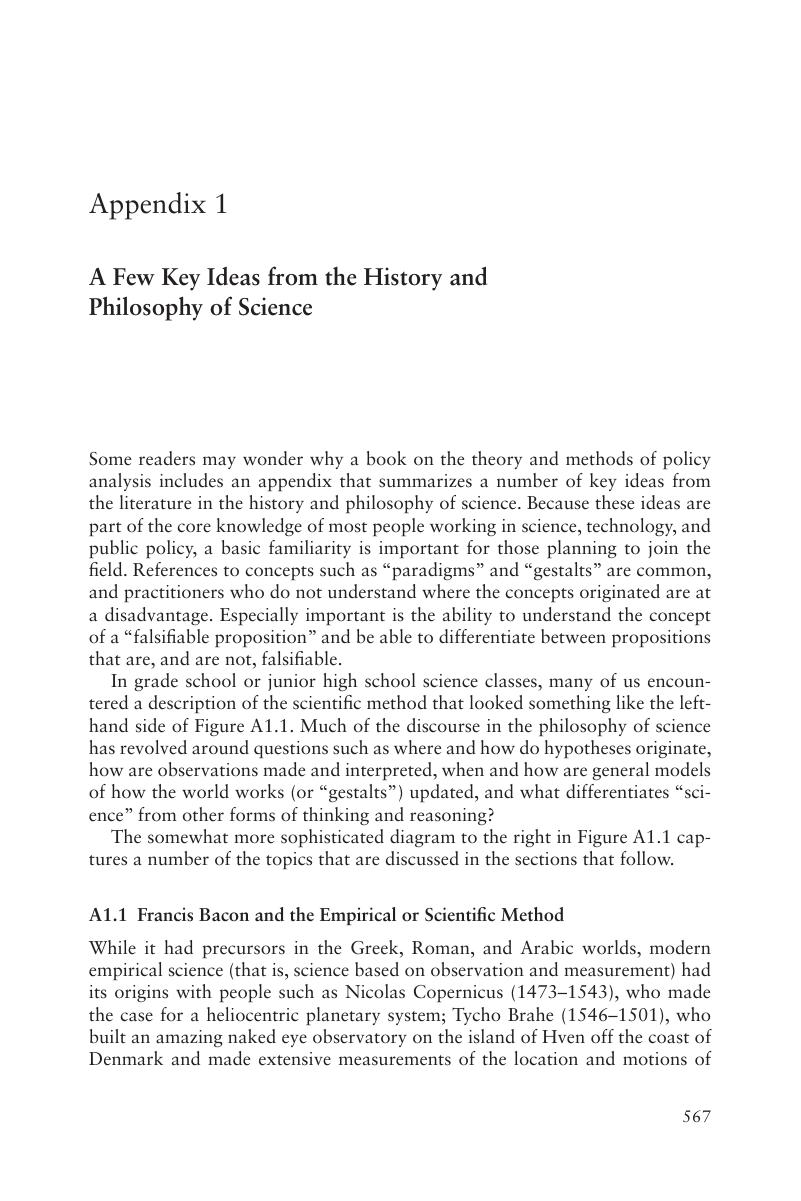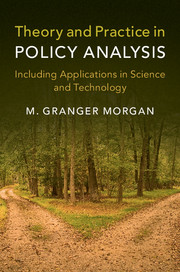Book contents
- Theory and Practice in Policy Analysis
- Theory and Practice in Policy Analysis
- Copyright page
- Contents
- Preface
- Acknowledgments
- 1 Policy Analysis: An Overview
- Part I Making Decisions that Maximize Utility
- Part II Some Widely Used Analysis Tools and Topics
- Part III How Individuals and Organizations Actually Make Decisions
- Part IV The Policy Process and S&T Policy (Mainly) in the United States
- Book part
- Appendix 1 A Few Key Ideas from the History and Philosophy of Science
- Appendix 2 Some Readings in Technology and Innovation
- Appendix 3 Some Readings in Science and Technology Studies
- Index
- References
Appendix 1 - A Few Key Ideas from the History and Philosophy of Science
Published online by Cambridge University Press: 24 August 2017
- Theory and Practice in Policy Analysis
- Theory and Practice in Policy Analysis
- Copyright page
- Contents
- Preface
- Acknowledgments
- 1 Policy Analysis: An Overview
- Part I Making Decisions that Maximize Utility
- Part II Some Widely Used Analysis Tools and Topics
- Part III How Individuals and Organizations Actually Make Decisions
- Part IV The Policy Process and S&T Policy (Mainly) in the United States
- Book part
- Appendix 1 A Few Key Ideas from the History and Philosophy of Science
- Appendix 2 Some Readings in Technology and Innovation
- Appendix 3 Some Readings in Science and Technology Studies
- Index
- References
Summary

- Type
- Chapter
- Information
- Theory and Practice in Policy AnalysisIncluding Applications in Science and Technology, pp. 567 - 576Publisher: Cambridge University PressPrint publication year: 2017



